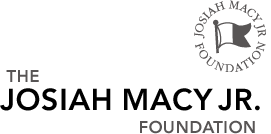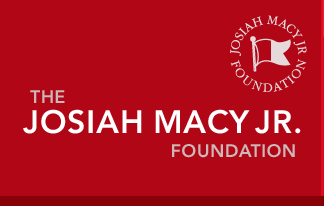Our Grantees
Across the Foundation’s priority areas, our grantees are working to improve the health of the public through innovative research and programs. The Foundation awards up to 40 grants on a rotating schedule each year.
National Center for Interprofessional Practice and Education
The National Center for Interprofessional Practice and Education launched in 2012 with the goal of accelerating teamwork and collaboration among doctors, nurses and other health professionals—as well as patients—and breaking down the traditional silo-approach to health professions education and practice.
Just two years later, the Center—housed at the University of Minnesota, under the direction of Dr. Barbara Brandt, and supported through a public-private partnership with HRSA, the Josiah Macy Jr. Foundation, the Robert Wood Johnson Foundation and the Gordon and Betty Moore Foundation—has already grounded itself as the national (and international) hub for interprofessional education (IPE) resources and best practices.
Known by many as The Nexus, the Center’s work is focused on strengthening partnerships between health professions education and health care delivery systems by encouraging them to work together to meet the demands of transforming processes of care delivery and the challenges in educating and training the next generation of health professionals. This synergy is the vision of The Nexus.
Making the Case for IPE
Through the story of Amina—a Somali woman striving to manage her diabetes and maintain her health in an urban setting—the National Center has been able to effectively articulate how interprofessional health care can advance the Triple Aim of better care, better health, and lower costs. The National Center has translated this powerful story into a set of teaching tools, including the Amina in the Nexus videos, to help health professionals, students and community members reflect on the need for collaborative care. Numerous academic institutions have used these tools to guide efforts to redesign their IPE programs or build them from the ground up.
Building the Evidence
And it’s not just stories that the National Center is relying on: “We need hard data to demonstrate why team-based care is so essential to the future of our health system and to guide the development of practical IPE programs across the country,” said Brandt.
To achieve this goal, the National Center has partnered with 11 academic health systems from around the country to form the Nexus Innovations Incubator Network. These institutions are implementing large-scale IPE initiatives—whether focused on classroom learning, on-site training, clinical practice or a combination of all three—to improve health. As part of the Nexus, these institutions are contributing data to the National Center Data Repository—a first-in-the-nation database of IPE programming outcomes—to demonstrate the long-term impact of team-based care on health.
“We need hard data to convince stakeholders that team-based care and education can truly make a difference in the health of patients, families and communities, and our hope is that this database will ultimately get us there,” Brandt said.
In the coming year, Brandt expects at least nine more institutions will join the Incubator Network.
Sharing Resources and Spreading Best Practices
To provide organizations and individuals with information, tools and resources to facilitate IPE conversations across the country, the National Center has also developed the Resource Exchange. This unique online platform acts as a community-supported collection of digital resources for those seeking information about interprofessional education and collaborative practice.
“There is no question that the environment for interprofessional care has changed dramatically over the past two years,” said Dr. Brandt. “Teamwork in health care is happening all over the world at an exponential rate. From the start, we’ve received a blitz of interest from institutions wanting to learn more about how to implement and grow IPE,” she said.
The Resource Exchange also acts as a forum for institutions to learn from one another, providing a platform for discussing experiences and sharing insights as well as asking questions and seeking feedback on ideas and initiatives.
“The conversations that are harnessed by the Resource Exchange help spread best practices,” explained Brandt.
In January, the National Center deployed community moderators to facilitate conversations in the Resource Exchange as a way to help institutions find the best resources for the curriculum they are trying to build.
On the Horizon
In just two short years, the Center has established itself as a go-to resource for health professions schools and is increasingly being tapped by hospitals, clinics and payers who are interested in the future of interprofessional practice and education. As it gathers more data and grows its community, Brandt expects the Center will become an even more effective, powerful force in advancing IPE and collaborative practice.





 11.13.18
11.13.18